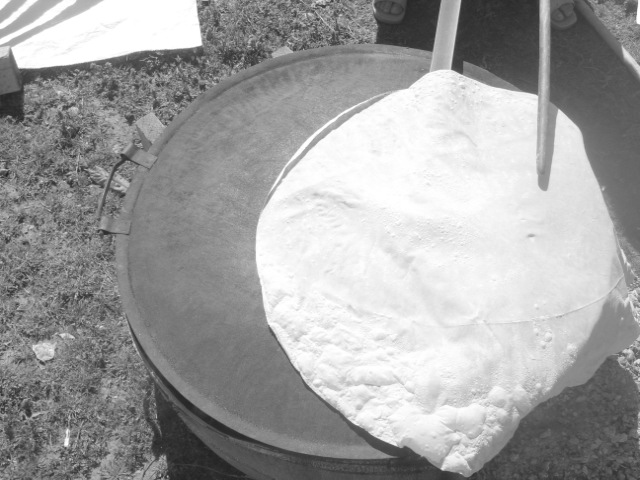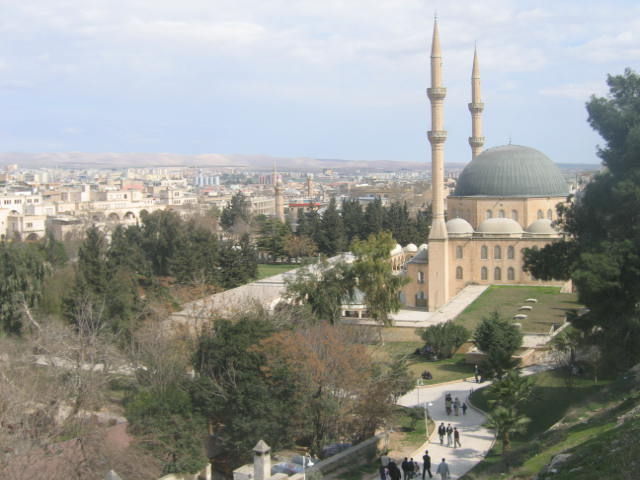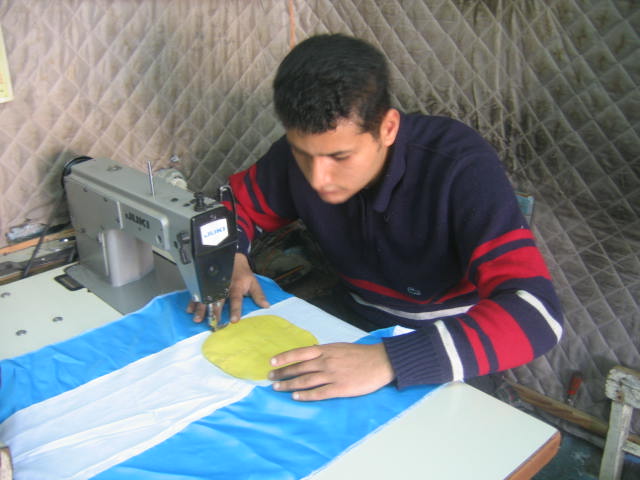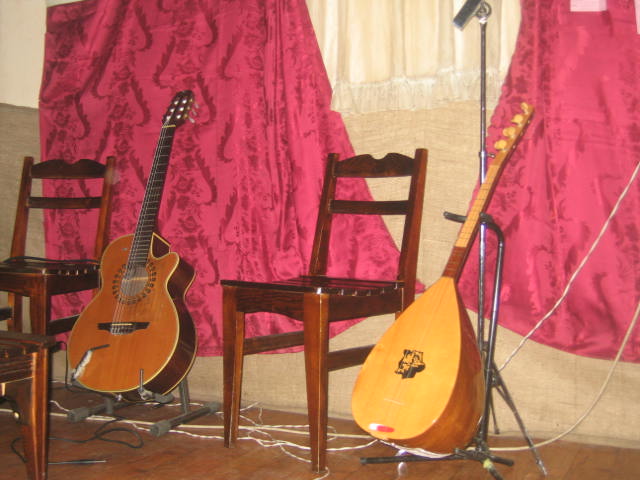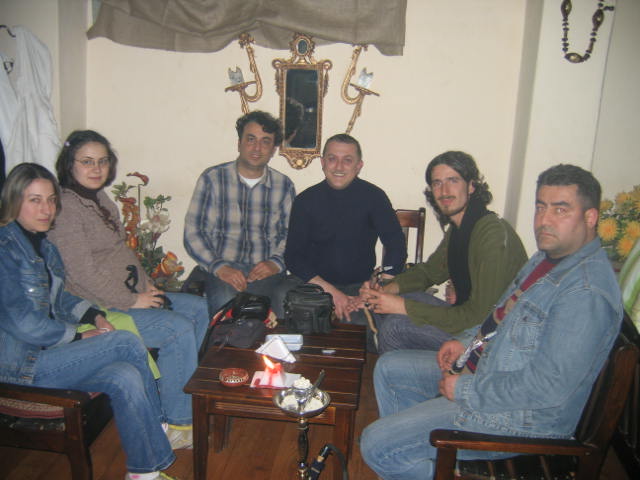
Notice: to read the full story, have a look at my book “Vagabonding in the Axis of Evil – By thumb in Iraq, Iran and Afghanistan”. Clic here to learn more. Order a copy and keep me on the road!
.
In Arbil, or Hewler, as the Kurds call it, I was expected by Maher, another alienated (alienation: unavoidable syndrome of the repatriated). Maher navigates the urban chaos of Arbil with Copenhagen's traffic manners. When he becomes the blank of all horns he curses in Romanian. "How about that?" -I stare at him. "Four years living in Cluj Napoca".

We had arranged to meet in the Sheraton Hotel, where American contractors rub shoulders with Arab oil sheiks and immense bodyguards whispering mysterious instructions to their shirts' collars. When I approach the reception with an 80 liters backpack behind and a small 20 liters one on my chest I am perfectly aware that I must resemble the average bomb man. The security guards think the same, and they check every centimeter of my being. To describe the atmosphere, enough to say that a sign at reception goes like this: "Please leave your guns at reception". Maher easily spots the hitch hiker among the postwar aristocracy.

We are soon going around the city, which reflects better than anything not only the economic recovery but also the will of existing of the Kurdish nation. A postcard akin to Berlin in the 1990s. Where the eye focuses, there is yellow crane. No building is completed. Nothing is. Everything is becoming. Whole housing estates are being given away to people free of charge. Facilities that in Saddam era people would only dream of spring everywhere: music schools, public swimming pools, rehab centers for personal mines victims...

"It is the first time that Kurdish people see construction, before we only knew how to spoil. We can't believe it." -says Maher. What I can believe is that Maher has swapped the idyllic land of Andersen to inhabit a province that strives to retain peace in a country mounted in the slide of civil war. Despite the enthusiasm there is much to do: Kurdistan is energetically dependent. Benzene price is high since there are no local refineries and they must sell black oil to Turkey and buy it back transformed into benzene. Electricity comes and goes: Arbil is a Christmas tree.

"Relax as if you were in Christiania" -says Maher when I spill the beer over the carpet. That somebody in Iraq was mentioning the famous Danish bohemian neighborhood was not as surprising as to remember that Maher had chosen to leave the hippies to inhabit these volatile valleys. Three knocks on the door: one for each mustached friend of Maher that enters the house. They are Kurdish from Diyarbakir, Turkey, activists of the PSK (Socialist party of Kurdistan). One of them, Kutlu, speaks some English.
.
- Nice, where did you learn, at an institute?
- 5 years in Diyarbakir prison.
.
I don't know if it was Holderlin or Wilde who said that isolation always paradoxically leads to an extension of vision. It’s certainly the case of Kutlu, who in his time behind the bars read half universal literature and even found the poet in him. Holding high the can of beer he drops some verses in Kurdish. Maher translates:
I don't know if it was Holderlin or Wilde who said that isolation always paradoxically leads to an extension of vision. It’s certainly the case of Kutlu, who in his time behind the bars read half universal literature and even found the poet in him. Holding high the can of beer he drops some verses in Kurdish. Maher translates:
.
- Even if with them I have seen my father and brother die, these eyes can rest when they reach you.
.
Only the word "stigma" comes to my mind. After the guns have silenced their sentence, how long shall we wait until we can definitely say goodbye to them? Say goodbye to the gun, to the memory of the gun, to the gun in the monument and in the flags, to the one in the poems, in the games and drawings of our children? Kutlu would have answer such question with a half page poem, but my intention was to know what the guys in the government thought about the matter. Thanks to Maher's contacts, during 24 hours we crossed phone calls with Dr.Kemal, the vice president of the Kurdish Parliament. Finally at 10 pm, when beer was starting to take its toll, the phone rang: "For you, the vice president" -says Maher.

The following morning we were entering the Parliament. Like the Sheraton, it's cordoned by 3 meters high contention walls. "For the bomb-car attacks" --points Maher. There are so many official buildings in such conditions that the government ordered muralists, in a psychedelic turn, to decorate such walls with child style drawings of valleys and kids playing with kites in an attempt to cheer up the looks of the city. Denying reality, a first step to change it? At least one doesn't have the sensation of being strolling around a battle ground. On the contrary, one would say that the Parliament is a kindergarten. The building itself doesn't look like a Parliament: in Europe we would mistake it for an office block. Even if it has been opened since 1992, only since three years ago the Parliament is producing something more than pressure over the ground. A group of coaches still covered with nylon also waits to enter the Parliament through a nearby door. Another indicator that everything in Kurdistan is arriving.

Once inside, to pompously dressed guards stay still in front of a giant portrait of Barzani. Like in the Danish Parliament!" -exclaims Maher with the crossed pride typical of the exiles.
.
I was received by the Information Advisor to the President, who among other things asked: "How do you travel?" "By thumb" -I replied. Since that reply in Kurdistan equals to say "by shoulder" I was demanded a practical demo. From somewhere a camera of Kurdistan TV appears, and so I found myself hitch hiking imaginary cars inside the Kurdish Parliament. I will always be grateful to life for such absurd moments.
.
Little after we were escorted to the vice president large office. Dr.Kemal greets me with his enormous hands marked by scars, souvenir of his time as Peshmerga, fighting up in the mountains, before asking asylum in Austria to heal himself. Such an eclipse of guerrilla experience with exile experience is frequent in those occupying notorious seats in Kurdistan. As in post WWI Germany, something that sociologists call "fronterlebnis" (experience of the front) seems to be the invisible seam of Kurdish society. The illusion that a shared sufferings necessarily flows into shared goals has resulted in true trust towards the political class. But not only in Kurdistan can illusion be the constituent material of reality.

When asked about how to transit from a mountain trekking fighters society to a civil one, he considered necessary to give me a brief history lesson. "For two millennia, the only friends of the Kurds have been the mountains" -he sentences. He details how in each historic period the Kurds have been swept aside by different enemies, always deprived of their chance of attempting their own country. After each historical era Dr.Kemal downs a glass of water as if he had choked with some century. His argument seems to point that demilitarization is far beyond possible horizons so far. Let's talk about democracy then. Surrounded by police states like Syria, Egypt and Iran, how can you develop a democracy? Is there anyway you are not going to imitate the regional model? (In Saddam's times if you didn't hang a portrait of him in your shop you would have it close it down quickly. Now people hang Barzani portrait just in case.) My question hides a premise, that Dr.Kemal either didn't detect or happily let pass: I am referring to Kurdistan in the same way I am referring to independent states as Syria or Egypt, while technically it is only an Iraqi province. His reply is poetic: "The sweet water that all Iraq drinks springs from the mountains here in the north. Some day we hope, democracy will also flow from here to our neighbors".
.
It is not going to be easy. During Saddam times, Arab families were paid to settle in traditionally Kurdish cities like Kirkuk and Mosul. The mix makes this city nearly ungovernable today. In Kirkuk, Kurds make up only 40% of the population now, while in Mosul the Tigris River divides the two groups, Arabs to the South and Kurds in the North. It is not difficult to imagine a Belfast or a Jerusalem in Mosul not long from now. Kirkuk was until recently considered safe, but while I was holding my interview a car bomb exploded and a grenade smashed the crystals of a judge's house. The government strategy is; again, compensate Arab families economically if they leave.
.
While history always postpone the answers, it's for me time to leave Iraq. The time is running and Iranian and Afghan visas are already sticked in my passport. While typing this lines, already out, I have the sensation of having lived 10 days within the pages of a history book, On the other side of the border, in Turkey, I feel a tickling in the stomach, and the question: "how is life going to be for them?" storms my mind. Because these "them" are not statistics or newspaper headlines anymore, they are faces, they are friends. Friends I carry in my steps, that invisible luggage that gets bigger and bigger.


































